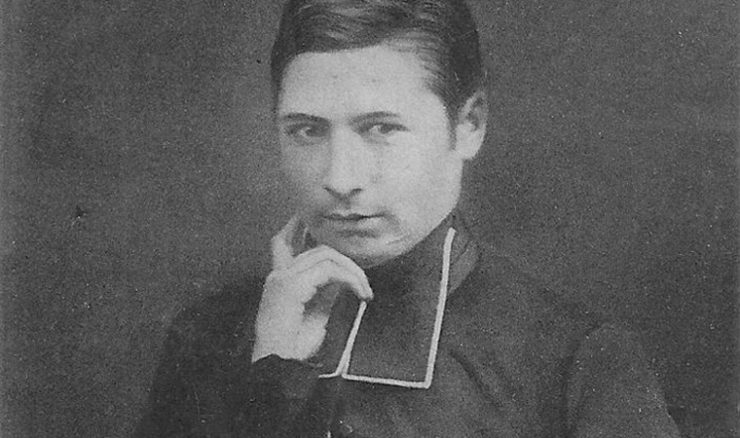
Today we continue our regular series called “Learning from the Saints.” Our guide is expert Bert Ghezzi, a dear friend of mine and the author of numerous books including Voices of the Saints, Saints at Heart, and Discover Christ: Developing a Personal Relationship with Jesus.
His more recent books are The Power of Daily Mass and The Heart of Catholicism. You can learn more about Bert and his work at BertGhezzi.com.
Today, Bert profiles St. Théophane Vénard, a French missionary and martyr whose feast day is today—on Thanksgiving!
One day, nine-year-old Jean-Théophane Vénard read about a priest who had been beheaded in Tonkin, which now is North Vietnam. Perhaps because the martyr was from Poitiers, his home town, the story affected him profoundly. “Me, too! I want to go to Tonkin!” he shouted. “Me, too! I want to be a martyr!” By coincidence or by grace, his wish would come true 22 years later.
St. Théophane Vénard came from a close-knit family. But at age 12 he was sent away to school at Doué, from that time returning home only occasionally. He completed his seminary education in 1850 and a year later he joined the Society of Foreign Missions in Paris. His decision caused his family great pain, as the society was a factory for martyrs.
Théophane was ordained in 1852. That same year he went to Hong Kong for training, where he was sick a great part of the time. Originally, he was to serve in China. However, circumstances changed and he was sent to Vietnam in 1854. Thus the stage was set for the realization of his childish wish.
A general persecution of Christians was underway in Vietnam, but for five years the saint worked secretly with other priests to care for tens of thousands of converts. In 1859, when the persecution intensified, he was forced to hide in the home of an elderly women. “What an enviable situation!” he wrote a friend:
“Three missionaries, one of whom is a bishop, lying side by side, day and night, in a space a yard-and-a-half square, getting a dim light from three holes the size of a little finger, made in the mud wall, which a poor old woman conceals with some sticks thrown down outside. Under our feet is a brick cellar, constructed with great skill by one of my catechists. We have enjoyed the old woman’s hospitality for three weeks, during which time I am afraid you would have been rather scandalized at our gaiety.”
Betrayed by a visitor, the priest was arrested on November 30, 1859. While awaiting execution, he was imprisoned for two months in a small cage. He wrote these words in a farewell to his father:
“All those around me are civil and respectful, and a good number love me. From the great mandarin down to the last soldier, they all regret that the laws of the country condemn me to death. I have not had to endure any torture, like so many of my brothers. One light saber blow will separate my head from my body, like a spring flower that the master of the garden picks for his pleasure. We are all flowers planted on this earth for God to pluck when he will, some sooner, some later. One is a blushing rose, another a virginal lily, a third a humble violet. Let us all try to please our sovereign Lord and Master by the gift and the fragrance he has given us.”
However, Théophane’s decapitation at the hands of a brutal executioner was a gruesome event. He died, a martyr of Vietnam, on February 2, 1861.
The best word to describe St. Théophane Vénard is “happy.” He was happy at home, happy at school and seminary, happy when he was sick, happy to be sent to Vietnam. And he was happy in his hiding hole, happy in his cage, and happy to bend his neck for the executioner’s sabre. I don’t wish for martyrdom, but I would like to be infected with a joy like St. Théophane Vénard.
Read more from Bert at his website www.BertGhezzi.com, or check out his many books on Amazon.

